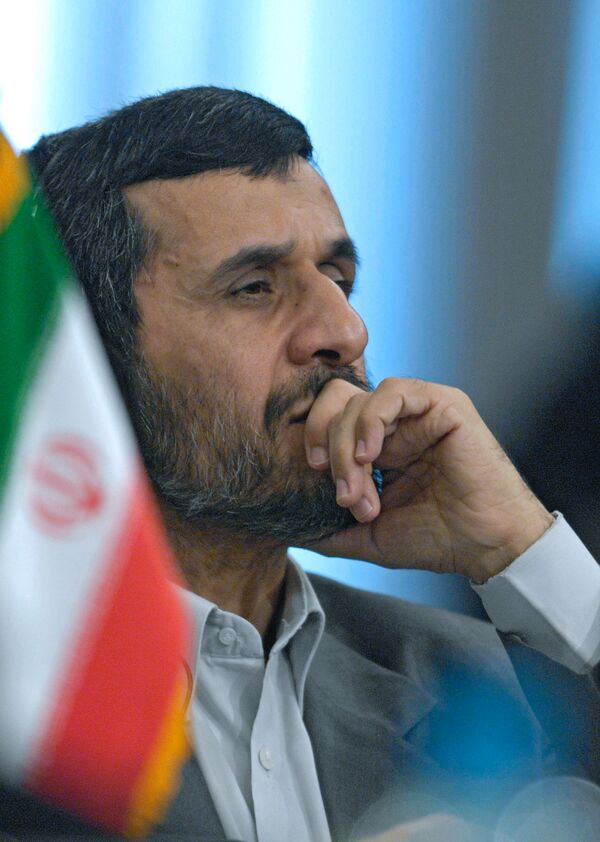Tehran rejects threats as part of a continuing campaign of psychological warfare against it and calls for more talks on the nuclear issue, President Mahmoud Ahmadinejad said.
In a televised speech Friday night, Ahmadinejad said the West had launched a massive propaganda campaign against the country's civil nuclear program, according to Press TV.
"Today, the only tool in the hands of [our] enemies is to wage a psychological war and raise the hue and cry; but they know well that threats will have no impact on the Iranian nation," he said.
He said Iran welcomed "talks and interaction."
The United States on Friday reiterated its call for Iran to give a formal response to an UN-backed draft deal over its nuclear program.
"Iran has not responded positively to the IAEA proposed agreement for the provision of nuclear fuel for its Tehran research reactor," State Department spokesman Robert Wood said.
Iran has yet to give an official answer to a UN-brokered deal designed to allay concerns over its nuclear program, which Western powers suspect of being aimed at the production of an atomic weapon. Iran says the program is for the peaceful generation of energy.
Under the deal, drawn up at October talks in Vienna between Iran, the UN, the U.S., Russia and France, the Islamic Republic would ship out its low-enriched uranium to Russia, where it would be enriched and then sent to France to prepare it for use in an Iranian reactor.
However, Iran has refused to send its stockpile to France and Russia, and the U.S. proposed allowing Tehran to send its uranium to any of several nations, including Turkey.
The United Nations nuclear watchdog said in a report on Monday that Iran's lateness in admitting to a second uranium enrichment site raises concerns that it may be hiding further information on nuclear facilities.
Iran admitted to the existence of an enrichment site near the city of Qom in September, and IAEA inspectors who were granted access to the facility the following month said construction was at an advanced stage.
MOSCOW, November 21 (RIA Novosti)





